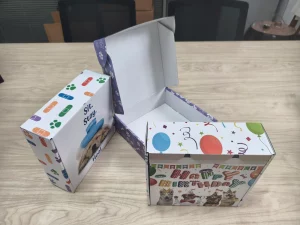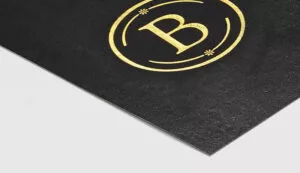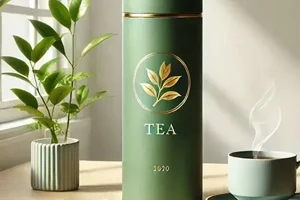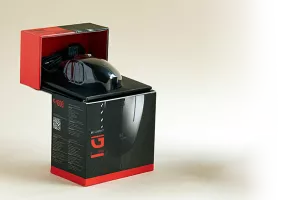The Rise of Sustainable Packaging: What the Market Holds for 2025
As we head towards 2025, the demand for emballage durable solutions has never been more critical. In a world increasingly focused on la durabilité, both businesses and consumers are seeking ways to reduce their environmental impact and move towards greener alternatives. The sustainable packaging market is thriving as customers become more eco-conscious, pushing companies to adopt respectueux de l'environnement pratiques.
In this article, we will explore the size, trends, and future of the sustainable packaging market, touching on critical dimensions like retail packaging, biodegradable optionset consumer preferences. Whether you’re a business owner trying to adopt green packaging practices or a consumer interested in understanding the movement, this guide will offer some valuable insights.
Table des matières
Why is Sustainable Packaging Important for the Future?
Le l'impact sur l'environnement of traditional packaging materials, especially plastique, is significant. Most plastic packaging ends up in landfills and oceans, creating lasting damage to the environment and sea life. At the same time, single-use packaging is often non-recyclable, contributing to the growing problem of déchets plastiques.
As a response, the introduction of emballage durable is one of the best ways to mitigate the environmental damage:
- Reduce Waste: Emballage durable uses matériaux recyclés ou eco-friendly alternatives qui sont biodégradable ou recyclable.
- Lower Carbon Footprint: The production of bio-based packaging decreases the carbon footprint compared to traditional plastic-based packaging.
- Customer Appeal: Consumer demand pour sustainable products has been reinforced by a growing preference for emballages écologiques.
According to studies, 73% of global consumers are willing to pay more for sustainable products [1]. This shift in consumer preference shows that integrating sustainable practices into product packaging is key to connecting with today’s eco-conscious market.
What are the Key Trends in the Sustainable Packaging Market?
Le sustainable packaging industry is full of innovations, trends, and emerging technologies that are set to revolutionize the way businesses package their products. Here are key packaging trends shaping the future of emballage durable:
1. Biodegradable Packaging
As concerns grow about the long-term effects of plastique, the packaging industry is moving towards biodegradable options. Materials like papier kraft, plant-based plasticset emballages compostables are gaining increasing traction.
- Sacs en papier kraft have emerged as an alternative to sacs en plastique in retail stores, grocery chains, and even luxury brands. Check out our Sacs en papier kraft for examples of eco-friendly paper options.
2. Reusable and Recyclable Packaging
Consumers and brands are moving from single-use products to more sustainable, reusable packaging solutions. Brands that allow customers to reuse their packaging, either through refillable systems or by incentivizing product returns, are capturing this emerging market.
- Paper-based packaging et rigid packaging made from matériaux recyclés are in high demand.
- Emballage recyclable promotes resource conservation and encourages consumers to make responsible choices post-purchase.
Products like our Boîtes en carton ondulé offer an example of highly recyclable packaging solutions.
ALT
3. Minimalist Packaging Designs
Minimalist packaging focuses on using fewer materials while maintaining the product’s protection and branding. Reducing the weight and bulk of packaging materials not only contributes to sustainability but also cuts down the costs associated with shipping and storage.
Why Minimalism?
- Cost-effective
- Less waste
- Aesthetic appeal
With more companies cutting back on excess material, minimalist packaging continues to gain ground.
4. Emballage intelligent
Emballages intelligents aka interactive and data-driven packaging materials will enhance supply chain visibility while minimizing environmental waste. For instance, using sensors embedded in solutions such as emballage intelligent helps minimize food spoilage by tracking freshness and conditions. This is especially relevant in the food packaging industry.
How Big Is the Sustainable Packaging Market?
Le sustainable packaging market size is forecast to grow exponentially, driven by high demand in industries like food, beverageset retail packaging.
- Global Sustainable Packaging Market Size: Expected to reach $441 Billion by 2028 with a CAGR (Compound Annual Growth Rate) exceeding 6% [2].
This trend indicates that companies would need to focus on la durabilité to not only remain competitive but also to respond to shifting consumer demand pour respectueux de l'environnement et green packaging produits.
What Types of Sustainable Packaging Materials Are Emerging?
Different types of eco-friendly packaging solutions are being developed and adopted across industries. Let’s break down the types of sustainable packaging:
1. Biodegradable Plastics
Bioplastics are made from renewable plant sources like corn starch or sugarcane. They act like traditional plastique but are biodegradable over time.
2. Paper and Cardboard
Classic paper-based packaging, such as paper bags and boîtes en carton, remains one of the more eco-friendly materials. These materials are renewable, recyclable, and often produced from papier recyclé.
For example, Boîtes en carton have been widely used by several brands as part of their solutions d'emballage durables.
ALT
3. Compostable Packaging
Products that break down in organic conditions, such as emballages compostables, provide businesses with one of the most environmentally friendly packaging options. This packaging decomposes fully with minimal environmental impact, reducing packaging waste in landfills.
How is Retail Packaging Evolving to Be More Sustainable?
Retail businesses are among the leading sectors adopting sustainable retail packaging practices. Whether in emballage de produits d'épicerie, fashion retail, or cosmetics packaging, eco-conscious packaging is steadily replacing plastic-based solutions:
Why is Retail Leaning Towards Sustainability?
- Consumer Demand: Consumer demand for sustainable packaging drives retailers to switch to respectueux de l'environnement options or risk losing loyal customers.
- Cost Savings: Durable, reusable packaging materials create long-term savings through reduced raw material costs and fewer disposables.
Retailers globally are launching sustainability initiatives, like eliminating single-use packaging and introducing reusable packaging programs. Retailers are also adopting flexible packaging that’s light, easy to ship, and recyclable, reducing both costs and the l'impact sur l'environnement.
How Does Consumer Demand Influence Sustainable Packaging?
Consumer demand is now the main driving force for companies to switch to emballage durable. Studies show that more than 80% of consumers look for produits écologiques and packaging when making purchase decisions
How does Sustainable Packaging Affect Purchase Decisions?
- Brand Perception: Today’s consumers associate la durabilité with brand ethics. Companies that use sustainable packaging materials are perceived as more environmentally responsible and appeal to eco-conscious buyers.
- Loyalty: When brands offer green packaging, they foster stronger customer loyalty, often leading to repeat business.
- Prices: Research shows that consumers are ready to pay a premium for sustainable products that minimize environmental harm.
Many companies are already incorporating sustainable practices into their products like Branded Headphone Boxes, appealing to the growing market keen on responsible consumption.
What Benefits Do Sustainable Packaging Solutions Offer?
Adopting solutions d'emballage durables offers several advantages to businesses and consumers alike. Here’s why it’s one of the fastest-growing trends in the packaging market:
- Protection de l'environnement: Reduces harmful déchets plastiques and minimizes damage to ecosystems.
- Enhanced Brand Loyalty: Businesses that prioritize la durabilité win greater consumer trust and loyalty.
- Cost Efficiency: Beaucoup matériaux durables comme recycled cardboard ou papier kraft are cost-effective, and designs can be optimized to use less material.
- Waste Reduction: Emballage recyclable materials help close the loop by ensuring packaging doesn’t contribute to the growing landfill problem.
Conclusion: Sustainable Packaging is the Future
There is no denying that la durabilité has become more than just a selling point—it’s now a necessity. The sustainable packaging market is rapidly growing, driven by both consumer demand for sustainable products and ambitious sustainability goals set by businesses and governments.
As businesses work towards a circular economy, where materials are reused and waste is minimized, recyclable packaging, biodegradable materials, and other green solutions will dominate the packaging market.
Principaux points à retenir :
- Durabilité is now integral to the packaging industry, with a particular focus on reducing déchets plastiques and increasing the use of matériaux recyclés.
- The global sustainable packaging market is growing rapidly, offering new opportunities for businesses that prioritize solutions d'emballage respectueuses de l'environnement.
- Consumer demand is pushing companies to innovate with biodégradable, reusableet emballages compostables, making them crucial to product purchase decisions.
Curious to learn more about emballages écologiques? Explore sustainable emballage en papier options such as Kraft Boxes and find out how your business can go green today!

Sources:
[1] Global Consumer Preference Report for Sustainable Packaging
[2] Global Packaging Market Size and Forecast








